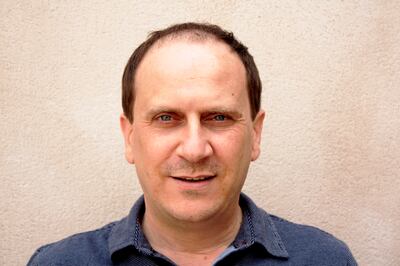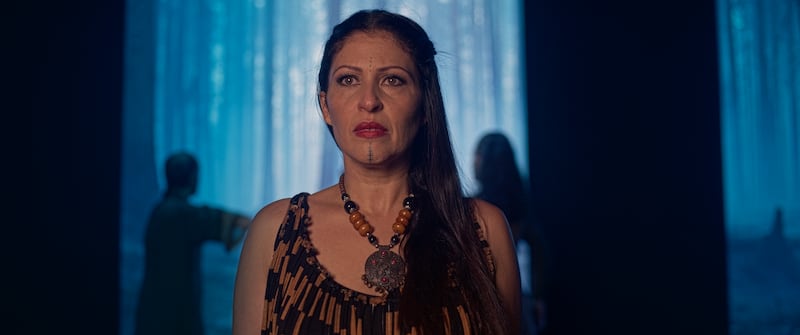Dancing, disaster and determination to make hard work look effortless are beautifully captured by an Arab film showing at Venice.
Backstage follows the dance group Without Borders who, as they prepare to end their tour in Morocco, suffer a series of ill fates. Member Aida (Afef Ben Mahmoud) first provokes her partner – both in life and on stage – Hedi (Sidi Larbi Cherkaoui). He injures her foot in front of their horrified colleagues, threatening their big finale.
Seeking medical attention in a town in the Middle Atlas, their bus driver soon loses control while trying to avoid a monkey and damages a tyre. With no spare, they're forced to wander the forest in search of a doctor.
It's an engaging tale and one produced, like the group's name suggests, across borders. Teams from Morocco, Tunisia, France, Belgium, Norway and Qatar all had roles in the production and it recently enjoyed its world premiere at Venice International Film Festival.
At the Lido, its two directors Khalil Benkirane and the aforementioned Ben Mahmoud (who also wrote the film) relax in the beautiful courtyard of the Villa degli Autori.

“I started writing the script in the first months of 2016. It took a long time," Ben Mahmoud tells The National. "Coming from a dance background, dance was the first subject that came to mind and which I wanted to write about.
“What’s interesting – and that’s even in the title – is that we’re in a society that always demands entertainment, but behind a beautiful show there’s reality."
With this in mind, the directors aim to present the performers as larger than life, before bringing them down to "human beings with qualities and flaws, just like us".
Benkirane adds: "We always have in mind this image of dancers and actors being perfect, so we worked on deconstructing their characters after they end up in the forest."
Casting the right actors has been a lengthy process, Ben Mahmoud reveals. “We did it over the course of seven years, picking our actors one by one," she says.
"Again, coming from a dance background, I’m close to this world and the first one who came to mind was Sidi Larbi Cherkaoui. I admired his work and we were so happy that he accepted to star and work on the choreography of this film when we approached him.”

The ensemble of Backstage is made up of a group of actors and dancers from across the Arab world including Sofiane Ouissi, Hajiba Fahmy Ali Thabet, Abdallah Badis, Salima Abdelwahab, Nassim Baddag and Saleh Bakri. The directors wanted to strike a balance between actors and dancers – and made a point of shooting the film in chronological order to help them "feel in a familiar environment, and break all their boundaries".
The feature was shot over five weeks, and the cast rehearsed for two before entering production. Ben Mahmoud underscores how challenging it was to build a real show, which she defines as “a film itself”.
“We had our first week of rehearsals in Belgium," she says. "I used to dance, but I’m not a dancer anymore so I prepared myself for one year. When you have it in your veins, it comes back very fast.
"But I was still scared. I danced for one day, and on the second one I injured myself. They told me: ‘This this not the movie yet, you did it on purpose.'"
Speaking about the film’s visual look, Benkirane says he wanted the characters “to linger between darkness and light". The crew, however, didn’t have enough equipment or time to perfect the set-up, so the team illuminated the forest generously with powerful spotlights hanging on 30-metre-high cranes.

“So we’ve got very bright images, and then we had an amazing colourist who spent two-and-a-half months to reach the right look, and make it look darker,” he explains. "[We used heavy lighting] because we needed as much information as possible, in order to keep what we needed and get rid of what we didn’t."
Ben Mahmoud says she edited part of the film herself as some of the footage was difficult for anyone unfamiliar with choreography to navigate, and she was best suited to cut the dance scenes into a coherent fashion.
When asked if they set out to make a film focusing on feminine themes, the two directors say they did.
“We wished to tackle some taboo issues in the Arab world, and this is an important one,” Ben Mahmoud says. "When women hit a certain age, they are pressured to get married and have children. In contemporary dance, your body is a working tool and giving birth means you won’t be able to perform to the level you were used to.
“Women are free. They’re allowed to choose what they want."






